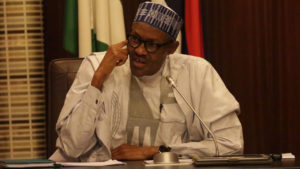The Federal Government on Thursday revealed that it would resume the implementation of the Export Expansion Grant next year with the settlement of outstanding claims to exporters.
The EEG claims according to figures obtained from the Nigerian Export Promotion Council is worth over N300bn.
The EEG is an initiative of the Federal Government that was meant to encourage exporters of non-oil products, including agro-commodities in order to cushion the effects of infrastructural deficiencies and reduce overall unit cost of production.
It was also meant to increase the competitiveness of Nigerian products in the international market place and it ranges from 10 per cent to 30 per cent of the Freight On Board value of the products being exported.
The scheme was suspended in 2014 following allegations of widespread abuse and the accumulation of significant liability on the Negotiable Duty Credit Certificate.
Addressing journalists on Thursday in Abuja, the Minister of Industry, Trade and Investment, Dr Okechukwu Enelamah said the government held a meeting with the exporters two weeks ago on the implementation of the scheme.
Enelamah who was giving an update on the implementation of the ministry’s objectives explained that the scheme had been reviewed to prevent it from being abused by exporters.
For instance, he said under the new arrangement, the backlog of exporters claims would be settled with a tax credit rather than import credit.
He said, “The Export Expansion Grant, which was suspended in 2014 following allegations of widespread abuse and the accumulation of significant liability on the Negotiable Duty Credit Certificate, is also expected to resume in 2017.
Stakeholders have taken the position that the Nigerian economy would be damaged if the CET is implemented in 2020 and that the situation would be compounded if Nigeria signs the Economic Partnership Agreement with the European Union.
In the area of Small and Medium Enterprises development, he said the ministry is currently running a feasibility study for the development of six Special Economic Zones and securing funding in the Nigerian budget for the first development phase to be launched in 2017.
He said already, other financial partners such as Afreximbank and EXIM bank of China have committed $1bn to the project.
He said, “The specific goals are to help overcome the infrastructure disadvantages faced by local manufacturers, and promote the cluster effects gained by locating similar manufacturing businesses together.”
In the area of investment drive, he said the ministry is working with the Nigerian Investment Promotion Commission to enhance investments and reverse the overall decline of foreign direct investment inflows.
On the ease of doing businesses, he stated that the Presidential Enabling Business Environment Council has been created and monthly meetings have commenced to monitor results achieved.
